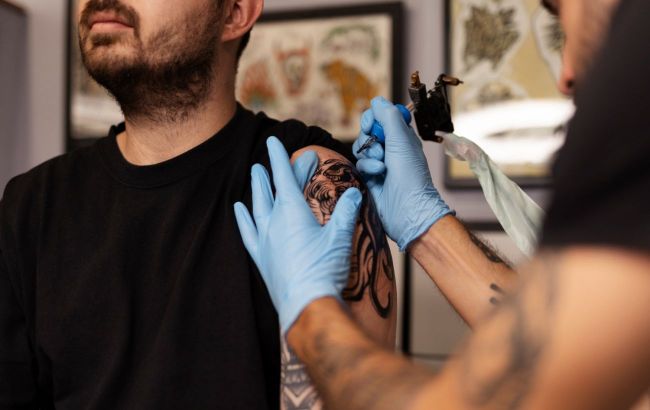Tattooing safely: What you need to know about risks and care
 When tattoos can be dangerous to health (photo: Freepik)
When tattoos can be dangerous to health (photo: Freepik)
Getting tattoos is nothing new but very popular among young people. However, tattoos are an invasive procedure, and therefore, there is a possibility of complications, according to the Livestrong website.
Tattoo Risks
Infection
Bacterial infection is the most common and occurs a few days after getting a tattoo.
Dermatologist Cybele Fishman explained that symptoms such as pain, fever, pus, or open sores will appear when a wound becomes infected.
These types of side effects are reasons to see a doctor.
More serious complications include HIV or hepatitis, which improperly sterilized tools can cause.
Allergic reaction
Introducing dye into the skin can lead to a skin allergic reaction. This can happen immediately or sometime after the tattoo.
An allergic reaction may appear as eczema, emerging a few days or weeks later.
Some pigments may be contaminated with nickel, which can cause a severe reaction in people allergic to this metal.
Additionally, some pigments cause photoallergy. This means that the sun, in combination with tattoo pigments, will trigger an allergy.
To mitigate this effect, cover the tattoo with clothing, stay in the shade, and use sunscreen.
Skin disease
Certain skin diseases, such as psoriasis and lichen planus, can be triggered by tattoos.
Tattoos can also lead to keloids, which are extra scar tissue.
Keloids are difficult to treat. If you know you are prone to one of these conditions, you should avoid getting tattoos.
What to do before getting tattoo
To protect your health, here’s what you should do before the procedure:
Be сonfident
Before making an appointment with a tattoo artist, make sure you choose a specialist with a high reputation.
You need the conditions to be sterile (needles, disinfected surfaces, tattoo artists wearing gloves).
Do not hesitate to ask many questions to ensure safety before the procedure.
Avoid getting tattoos while on medication
Some medications can also increase the risk of bleeding, such as blood thinners. If you have had blood clots before or are taking blood thinners, talk to your doctor before getting a tattoo.
Follow aftercare instructions
The tattoo salon will likely provide handouts with instructions.
Aim to thoroughly clean the skin, moisturize, and keep the tattoo out of the sun for a few weeks. Avoid swimming and hot baths during the healing process.
This material is for informational purposes only and should not be used for medical diagnosis or self-treatment. Our goal is to provide readers with accurate information about symptoms, causes, and methods of detecting diseases. RBС-Ukraine is not responsible for any diagnoses that readers may make based on materials from the resource. We do not recommend self-treatment and advise consulting a doctor in case of any health concerns.


